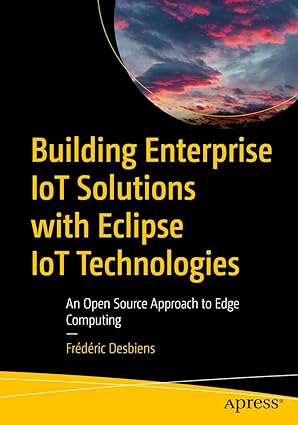Software Engineering Excellence in the Age of Generative AI and LLMs: A Focus on Full-Stack IoT and Digital Twins
Introduction
The convergence of Generative AI, Large Language Models (LLMs), Full-Stack IoT, and Digital Twins is reshaping the landscape of software engineering. This white paper explores the essential skills required to excel in this emerging domain.
Core Technical Skills
- AI and Machine Learning Fundamentals:
- Deep understanding of machine learning algorithms (supervised, unsupervised, and reinforcement learning)
- Proficiency in deep learning techniques, particularly neural networks and transformers
- Familiarity with AI concepts like natural language processing (NLP), computer vision, and time series analysis
- IoT and Embedded Systems:
- Knowledge of IoT protocols (MQTT, CoAP, HTTP) and device connectivity
- Experience with embedded systems programming (C, C++) and microcontrollers
- Understanding of sensor data acquisition, processing, and transmission
- Cloud Computing and Big Data:
- Proficiency in cloud platforms (AWS, Azure, GCP) and their services (IoT Core, Functions, Data Analytics)
- Knowledge of big data technologies (Hadoop, Spark, Kafka) for processing and analyzing IoT data
- Experience with data storage and retrieval techniques (SQL, NoSQL)
- Digital Twin Technology:
- Understanding of digital twin concepts and their applications in various industries
- Skill in modeling and simulating physical systems and their digital counterparts
- Knowledge of real-time data synchronization and integration techniques
- Generative AI and LLMs:
- Proficiency in using LLMs for natural language processing tasks (text generation, summarization, translation)
- Ability to fine-tune LLMs for specific IoT and digital twin applications
- Understanding of generative AI techniques for creating synthetic data and anomaly detection
Soft Skills
- Problem-Solving and Critical Thinking:
- Ability to identify complex problems and break them down into smaller, manageable tasks
- Skill in analyzing large datasets and extracting meaningful insights
- Capacity to think critically about the ethical implications of AI and IoT
- Adaptability and Continuous Learning:
- Willingness to embrace new technologies and trends
- Ability to quickly learn and adapt to changing requirements
- Passion for staying up-to-date with the latest advancements in AI, IoT, and digital twin technologies
- Collaboration and Communication:
- Effective communication skills, both written and verbal
- Ability to work collaboratively with cross-functional teams (hardware, software, domain experts)
- Skill in explaining complex technical concepts to non-technical stakeholders
References
- University Research:
- Massachusetts Institute of Technology (MIT) Computer Science and Artificial Intelligence Laboratory (CSAIL)
- Stanford University's Human-Centered AI Institute
- Carnegie Mellon University's Robotics Institute
- Industry References:
- AWS IoT Core
- Microsoft Azure IoT Hub
- Google Cloud IoT Core
- Trade References and Books:
- "IoT Fundamentals: Networking Technologies, Protocols, and Platforms" by Arshdeep Bahga and Vijay Madisetti
- "Digital Twin Technology: Principles and Applications" by Tahir Hussain and Muhammad Imran
- "Hands-On Machine Learning with Scikit-Learn, Keras, and TensorFlow" by Aurélien Géron
Conclusion
Software engineers who can effectively combine Generative AI, LLMs, Full-Stack IoT, and Digital Twin technologies will be at the forefront of innovation. By mastering the technical and soft skills outlined in this white paper, engineers can develop intelligent, connected, and autonomous systems that transform industries.
Additional Considerations
- Security and Privacy: Ensuring the security and privacy of IoT devices, data, and AI models.
- Ethical Considerations: Addressing ethical implications of AI and IoT, including bias, fairness, and accountability.
- Sustainability: Designing energy-efficient and environmentally friendly IoT solutions.
- User Experience: Creating user-friendly and intuitive interfaces for IoT devices and digital twins.
By considering these factors, software engineers can develop responsible and sustainable solutions that benefit society.



